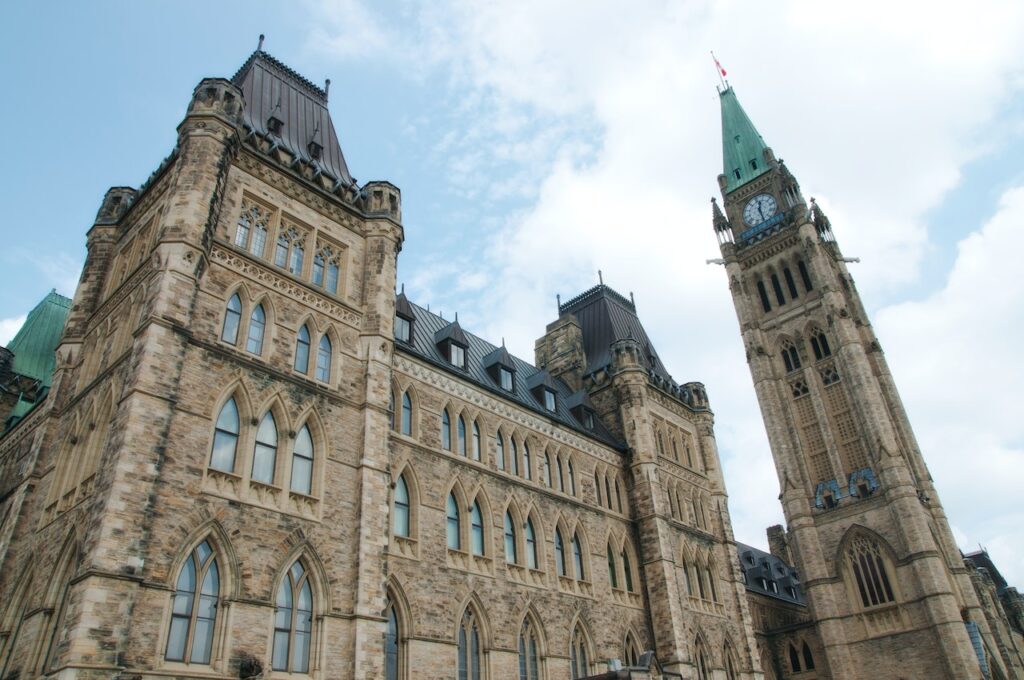Impact of Political Events on the Canadian Dollar
The Canadian dollar (CAD), colloquially known as the loonie, is a crucial player in the global foreign exchange market, influenced by various factors that shape its value. Among these factors, political events wield significant influence, driving fluctuations in the Canadian dollar’s exchange rates. This article delves into the intricate relationship between political events and the Canadian dollar, exploring how political developments at home and abroad can send ripples through currency markets, impact investor sentiment, and shape the economic landscape of Canada.
Political Events and Exchange Rates
- Economic Policy Changes: Political events often signal changes in economic policies, which can have profound effects on the Canadian dollar. Announcements of fiscal policy changes, tax reforms, or adjustments to government spending can alter the economic outlook, influencing investor confidence and impacting the loonie’s value.
- Interest Rate Decisions: Central banks, including the Bank of Canada, are key players in shaping monetary policy. Political events, such as changes in government leadership or economic crises, can indirectly influence interest rate decisions. Shifts in interest rates can lead to adjustments in the Canadian dollar’s value as they impact the attractiveness of the currency to investors.
- Trade Relations and Agreements: Political events related to trade agreements and international relations can significantly affect the Canadian dollar. Negotiations, disputes, or resolutions on trade matters can influence the perception of Canada’s economic stability and impact the country’s trade balance, subsequently affecting the loonie’s value in the foreign exchange market.
- Election Outcomes: Political events that include elections and changes in government leadership can introduce uncertainty and impact the Canadian dollar. Elections often bring about shifts in economic policies, and the perceived economic competence of the incoming government can influence investor sentiment, leading to fluctuations in exchange rates.
- Global Economic and Geopolitical Tensions: Events such as global economic downturns, geopolitical tensions, or conflicts can have a broad impact on currency markets. As a commodity-driven economy, Canada is sensitive to global economic conditions, and political events that contribute to uncertainty or market volatility can affect the loonie.
Impact of Political Events on the Canadian Dollar
- Election Outcomes: Elections in Canada and major trading partners can have profound effects on the Canadian dollar. The anticipation and aftermath of an election can lead to increased volatility in currency markets. A change in government can bring about shifts in economic policies, affecting investor confidence and influencing the loonie’s value.For example, a new government with a pro-business agenda may be viewed favorably by investors, potentially strengthening the Canadian dollar. Conversely, political uncertainty or policy changes perceived as less market-friendly may lead to a weaker loonie as investors seek safer assets.
- Trade Agreements and Tariff Developments: Trade agreements and tariff decisions can significantly impact the Canadian dollar, given Canada’s reliance on international trade. Positive developments, such as the resolution of trade disputes or the signing of beneficial trade agreements, can boost investor confidence and contribute to a stronger loonie.Conversely, trade tensions or the imposition of tariffs can lead to concerns about the impact on Canada’s exports, negatively affecting the Canadian dollar. The renegotiation of trade agreements, as witnessed in the United States-Mexico-Canada Agreement (USMCA), can introduce uncertainty, influencing currency markets.
- Interest Rate Decisions: Political events that signal changes in economic policies, especially those related to interest rates, can impact the Canadian dollar. The Bank of Canada’s decisions on interest rates play a crucial role in shaping the loonie’s value. Political pressures or government directives that influence the central bank’s autonomy may introduce uncertainty and affect investor sentiment.For instance, if a government pressures the central bank to adopt expansionary monetary policies, it could lead to concerns about inflation and currency depreciation. Conversely, a commitment to maintaining monetary stability and independence may contribute to a more positive outlook for the Canadian dollar.
- Global Economic and Geopolitical Events: Events with global ramifications, such as economic downturns or geopolitical tensions, can have indirect yet substantial effects on the Canadian dollar. As a commodity-driven economy, Canada is sensitive to changes in global demand and economic conditions. Political events that contribute to market volatility may prompt investors to seek safe-haven currencies, impacting the loonie’s value. For example, during periods of heightened global uncertainty, the Canadian dollar may face headwinds as investors flock to traditional safe-haven currencies like the U.S. dollar, affecting the CAD/USD exchange rate.
Case Studies: Political Events and the Canadian Dollar
- USMCA Negotiations and the Loonie: The renegotiation of the North American Free Trade Agreement (NAFTA) and the subsequent creation of the United States-Mexico-Canada Agreement (USMCA) had notable implications for the Canadian dollar. Throughout the negotiations, the loonie experienced periods of volatility, responding to developments in the trade talks.Positive outcomes, such as the resolution of key trade disputes and the continuation of a trilateral trade agreement, contributed to increased confidence in the Canadian economy. The anticipation and conclusion of the USMCA negotiations played a role in shaping the loonie’s value, reflecting the broader economic implications of the trade agreement.
- Political Leadership Changes and Currency Impact: Changes in political leadership can introduce uncertainty, influencing the Canadian dollar. The election of a new government or the ousting of an existing one can impact investor sentiment, leading to shifts in exchange rates. Historical examples include the impact of federal elections in Canada or the change in U.S. presidential administrations.The perceived economic policies of the new leadership and their potential impact on Canada’s economic outlook can lead to currency fluctuations. Investors closely monitor political developments to gauge the direction of economic policies and assess the potential consequences for the Canadian dollar.
- Global Economic Downturns and Commodity Prices: Political events that contribute to global economic downturns can impact the Canadian dollar, given the country’s reliance on commodity exports. For instance, the 2008 global financial crisis led to a decline in commodity prices, affecting Canada’s export revenue and influencing the loonie’s value.Political responses to economic challenges, such as stimulus measures or austerity policies, can shape investor perceptions and impact the Canadian dollar. During periods of economic uncertainty, the currency may experience fluctuations as market participants assess the implications of political decisions on Canada’s economic resilience.
Strategies for Investors and Businesses
- Stay Informed and Monitor Political Developments: Investors and businesses should stay informed about political developments that may impact the Canadian dollar. Monitoring elections, trade negotiations, and government policies can provide insights into potential shifts in the economic landscape.
- Diversification of Currency Exposure: Diversifying currency exposure is a risk management strategy for investors and businesses. Holding a mix of currencies and assets can help mitigate the impact of fluctuations in the Canadian dollar. This approach allows for greater flexibility and resilience in the face of changing political and economic conditions.
- Understand the Link Between Political Events and Currency Movements: Understanding the relationship between political events and currency movements is essential for making informed decisions. Recognizing how certain events, such as changes in interest rates or trade agreements, may influence the Canadian dollar enables investors and businesses to anticipate potential market reactions.
- Consider Hedging Strategies: For businesses engaged in international trade, hedging strategies can be employed to mitigate currency risk. Forward contracts, options, and other hedging instruments can help protect against adverse currency movements and provide a degree of certainty in budgeting and financial planning.
- Assess Long-Term Economic Fundamentals: While short-term political events can lead to currency fluctuations, assessing long-term economic fundamentals is crucial. Factors such as a country’s economic growth, fiscal policies, and structural strengths play a significant role in shaping the value of its currency over the long term.

The Canadian dollar’s value is intricately connected to the ebb and flow of political events, both domestically and globally. Political changes, trade agreements, and economic policies can send ripples through currency markets, influencing investor sentiment and impacting the loonie’s value. Investors, businesses, and policymakers must navigate this dynamic landscape with vigilance and adaptability.
As Canada continues to engage in global trade, political events will remain a key driver of currency movements. Understanding the nuances of this relationship empowers stakeholders to make informed decisions, manage risks effectively, and contribute to the overall stability and resilience of the Canadian dollar in the face of an ever-changing political and economic landscape.



